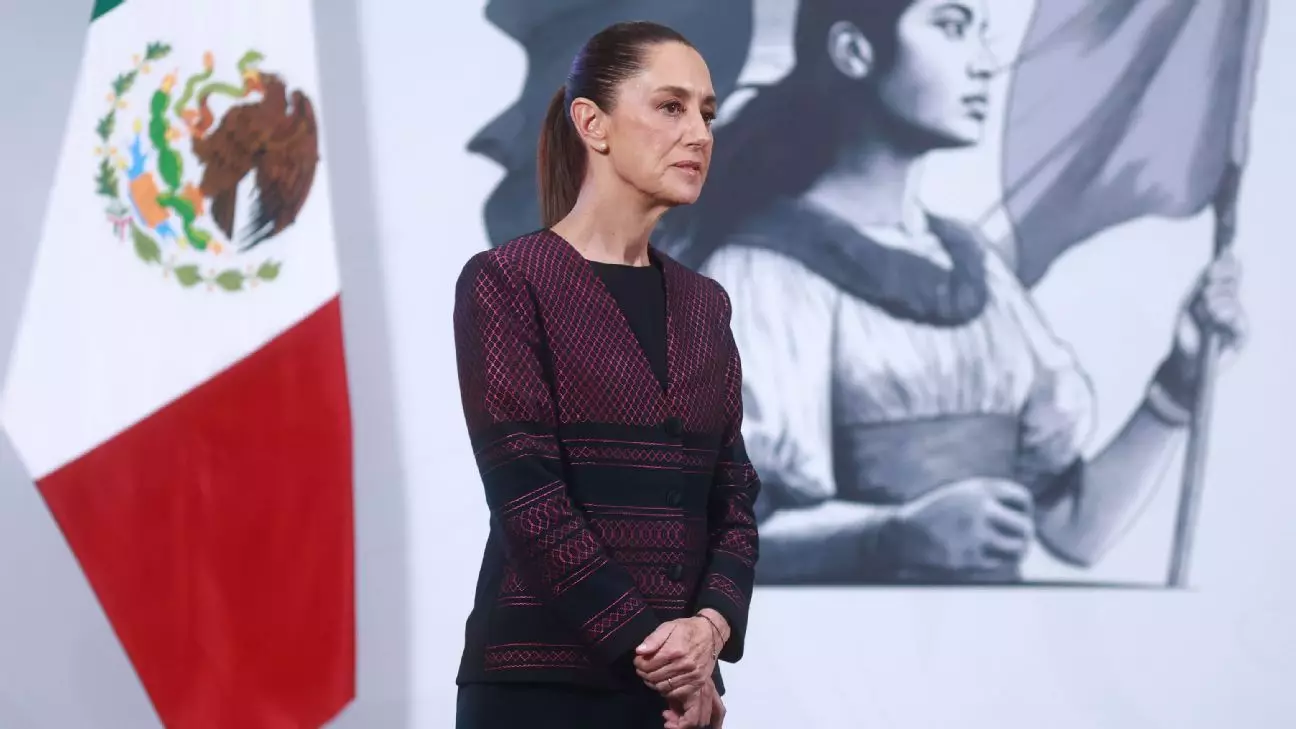The atmosphere surrounding major sporting events should evoke solidarity and joy, yet recent developments in U.S. immigration policies have cast a shadow over such celebrations. As the streets of Los Angeles buzzed with anticipation for the Gold Cup match between Mexico and the Dominican Republic, Mexican President Claudia Sheinbaum found herself imploring U.S. authorities not to target attendees with immigration enforcement. It’s a poignant reminder of how sports can be tainted by political agendas, especially in our increasingly polarized landscape.
Sheinbaum’s statement reflects a growing concern among many advocates for human rights, who view aggressive immigration enforcement actions—especially those that target undocumented migrants in public gatherings—as fundamentally unjust. By situating law enforcement at a venue designed for unity and enjoyment, the government sends a troubling message: the presence of undocumented individuals is both criminal and unwelcome, even in spaces meant for celebration. This stance not only facilitates division but also disenfranchises vibrant communities that add rich cultural fabric to American society.
The Resurgence of Draconian Policies
The recent arrests stemming from aggressive immigration enforcement hark back to the stringent policies of the Trump era, which many believed were put to rest following the administration’s departure. Yet, here we are, faced with reminiscent tactics that prioritize rigid enforcement over compassion. The presence of U.S. Customs and Border Protection (CBP) officials, promising to be “suited and booted” at soccer matches and other large gatherings, exemplifies a misguided focus on policing rather than fostering community safety.
It’s not lost on anyone that such aggressive tactics often disproportionately impact marginalized communities, raising the stakes for those merely wanting to enjoy a game. The politicization of cultural events shifts the focus away from the sporting spirit and diminishes the significant role these events play in unifying diverse groups under a shared interest. Instead of celebrating talent, endurance, and teamwork, we risk turning these gatherings into sites of fear and potential trauma for individuals who are already navigating precarious circumstances.
Navigating National Identity and Social Responsibility
Sheinbaum’s comments also touched upon the implications of recent protests in Los Angeles, where demonstrators were seen waving Mexican flags—a symbolic act of identity that can easily be misconstrued as a provocation. Yet, it’s essential to recognize that these expressions of national pride are often rooted in a collective identity forged through struggle, resilience, and deeply personal connections to home.
Mexico, as Sheinbaum aptly articulated, seeks to promote peace. The hardworking individuals represented by the Mexican flag in the U.S. are not aggressors; rather, they are a testament to the strength and perseverance of a community that continuously strives for better opportunities. They deserve the right to partake in cultural celebrations without the looming specter of detention hanging overhead. This inherent dignity should transcend political machinations that aim to capitalize on fear.
The Need for Change
The escalating tension surrounding immigration enforcement and community activities underscores a dire need for dialogue and reform. Laws and policies should reflect compassion and understanding, rather than pathologizing individuals based on their legal status. Sporting events should not only serve as festivities; they should symbolize the collective aspirations of a diverse populace. It’s time for a reevaluation of policies that prioritize enforcement over empathy, allowing communities to celebrate their rich cultural diversity in peace.
The love for soccer—and what it represents—should unite rather than segregate. It’s high time to prioritize humanity over enforcement and choose a path that fosters inclusion rather than division.


Leave a Reply